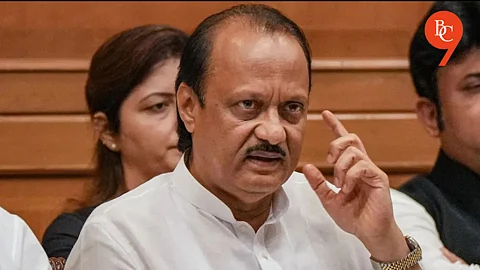

Pune Metropolitan Region (PMR) is set to become a national-level growth hub focusing on technology, manufacturing, education, and green mobility.
PMRDA will fund the development while Yashada will prepare the planning framework; local civic bodies will implement the plan.
By 2030, Pune aims to generate 15–18 lakh jobs, boost investment, and strengthen sectors like IT, AI, EVs, and clean tech.
Pune, 25 July 2025: The Pune Metropolitan Region (PMR) will be developed into a national-level growth hub, focusing on advanced technology, manufacturing, education, and sustainable mobility. This announcement was made by deputy chief minister Ajit Pawar during a meeting held at Mantralaya, organised under the guidelines of NITI Aayog.
The Pune Metropolitan Region Development Authority (PMRDA) will finance the development project, while Yashada, the state’s administrative training institute, will create the planning framework. This framework will be executed by local agencies, including the Pune Municipal Corporation (PMC) and PMRDA, with oversight from the divisional commissioner.
The central government had identified 14 cities to be developed as growth hubs in the Union Budget 2024. The first phase included Mumbai, Surat, Vizag, and Varanasi. Now, Pune is being considered for inclusion in the next phase, given its strong infrastructure, IT sector, metro and ring road connectivity, and educational institutions.
Pawar said Pune holds significant potential due to its rapidly growing tech and industrial base, as well as high-quality education and healthcare services. He noted that the city currently has a gross income of ₹4.2 lakh crore and is projected to create between 15 to 18 lakh jobs by 2030, including six lakh jobs specifically for women.
Yashada will soon host a review meeting chaired by chief minister Devendra Fadnavis to coordinate efforts between all stakeholders. The key focus areas of Pune’s growth hub model will include information technology (IT), artificial intelligence (AI), electric vehicles (EVs), clean technology, and semiconductors. Existing industrial corridors such as Chakan, Talegaon, and Ranjangaon will be further strengthened.
Additionally, with over 800 higher education institutions, Pune is being positioned as a "skilling-export" city. Plans are also in place to boost heritage and agro-tourism, spiritual travel, and adventure zones. The region will also prioritise improving ease of doing business, certification of skills, and attracting start-ups and foreign investments.
